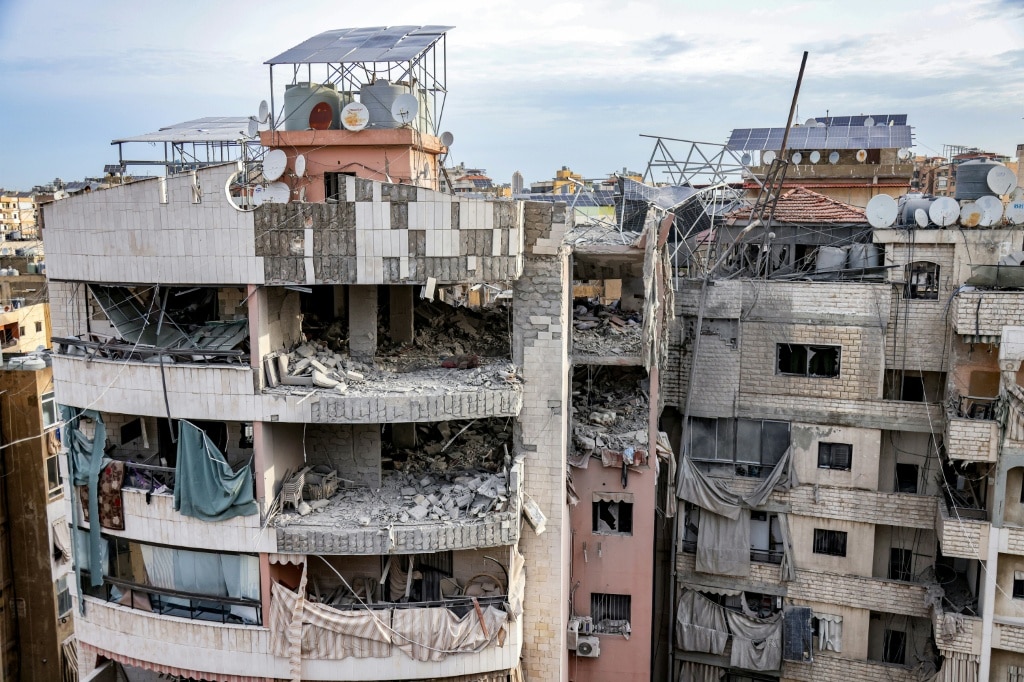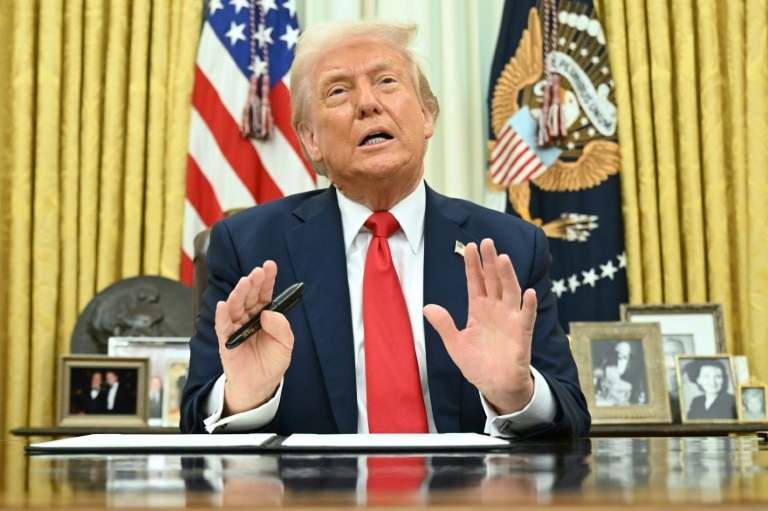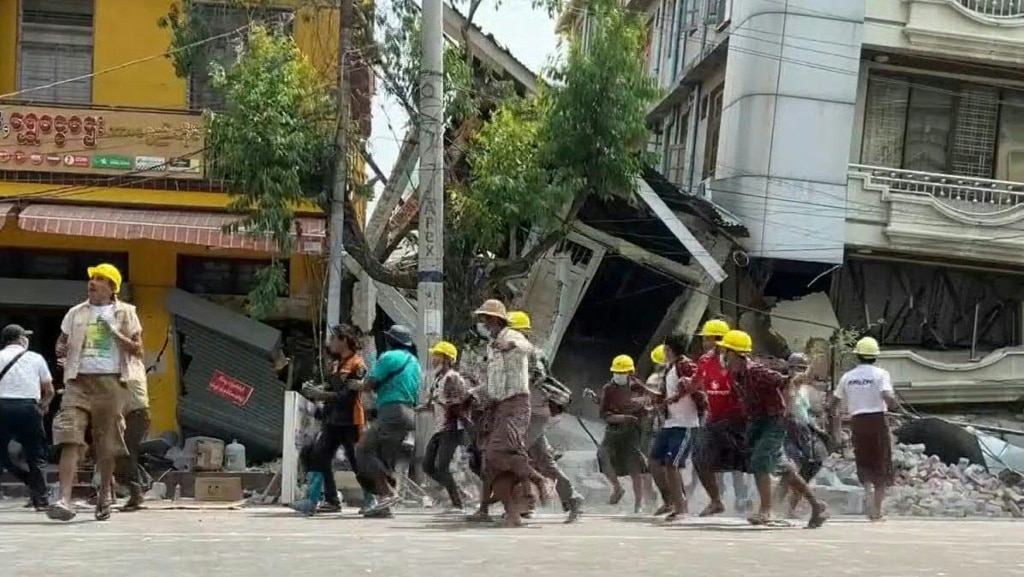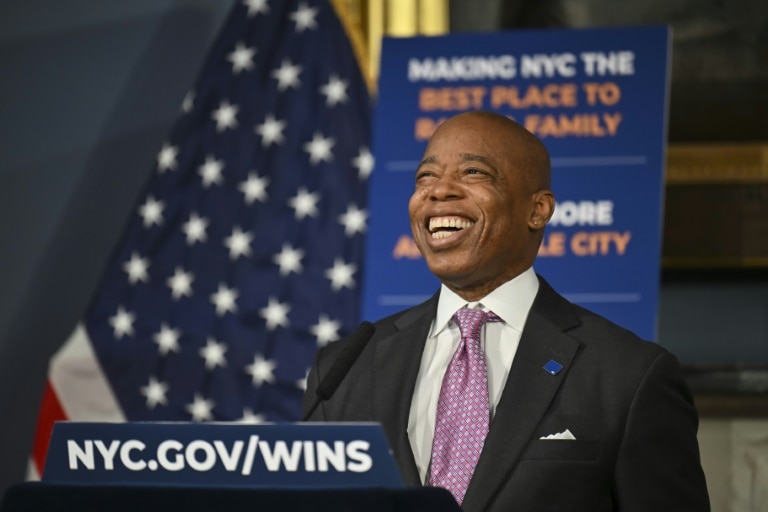Hezbollah official among four dead in Israeli strike on Beirut
Hezbollah official among four dead in Israeli strike on Beirut

An Israeli strike on Beirut on Tuesday killed a Hezbollah official handling Palestinian affairs, in the second such raid within days on the Lebanese militant group's stronghold despite a four-month ceasefire.
Lebanon's leaders condemned the attack, which came without warning at around 3:30 am (0030 GMT) during the Eid al-Fitr holiday marking the end of the Muslim fasting month of Ramadan.
The health ministry reported four dead including a woman. Israel and Hezbollah separately said the strike killed Hassan Bdair, who a source close to the Iran-backed group identified as its "deputy head for the Palestinian file".
The source, requesting anonymity, said Bdair was "at home with his family" at the time of the strike.
A Hezbollah statement said his son was killed, calling on supporters to join the funeral procession scheduled for Wednesday.
An AFP journalist said the raid destroyed the top floors of a multi-storey building.
Ismael Noureddine, who lives opposite, described "a very big explosion" followed by another, saying his family "couldn't see each other because of all the dust".
Israel previously struck the Hezbollah stronghold in the Lebanese capital's south on Friday in response to rocket fire, after it issued an evacuation warning.
A statement from the Israeli military and security services said that Bdair was Hezbollah's liaison with Palestinian militant group Hamas, whose major October 2023 attack on Israel sparked war in the Gaza Strip.
Bdair "directed Hamas terrorists and assisted them in planning and advancing a significant and imminent terror attack against Israeli civilians", the Israeli statement said.
- 'Everyone' a target -
President Joseph Aoun urged Lebanon's allies to support his country's "right to full sovereignty".
Prime Minister Nawaf Salam called the attack a "clear breach" of the November 27 ceasefire that largely ended more than a year of hostilities between Israel and Hezbollah.
The two later met to discuss "the repercussions of the Israeli aggression", a presidency statement said.
Hezbollah lawmaker Ibrahim Musawi said the government must "guarantee the safety of the Lebanese", while fellow MP Ali Ammar warned that the group's "patience has its limits".
Amal Saad, a Lebanese expert on Hezbollah who lectures at Cardiff University, said the group appeared to be waiting for the government to deal with the Israeli escalation "through its Western allies".
But she warned that Hezbollah's "very identity and raison d'etre is being threatened here if it continues to sit on its hands".
Israel has continued to strike southern and eastern Lebanon since the truce began, hitting what it says are Hezbollah military targets that violate the agreement.
Heiko Wimmen of the International Crisis Group think tank said that Israel has followed "an expansive interpretation of its right to self-defence" under the ceasefire agreement.
While "this has been the 'normal' since November", Israel's military action was "now occurring in Beirut", Wimmen told AFP.
Jamal Badreddine, 67, who lives just 30 metres (yards) from where Tuesday's strike hit, said that "everyone in the country, from young to old has become the target".
- 'Hit harder' -
Israel's strike on Beirut last week came in response to a second salvo of rockets from Lebanon, which it blamed on Hezbollah despite the group's denials.
The Lebanese army has said it located the launch site of Friday's rocket fire, and security forces said they had arrested several suspects.
Hezbollah began firing rockets at Israel in October 2023 in support of ally Hamas. After nearly a year of cross-border exchanges of fire, Israel launched an air and ground offensive in September.
Stephane Dujarric, spokesman for United Nations' secretary-general, called on "all parties to exercise maximum restraint and refrain from further escalatory activities".
Under the ceasefire, Israel was due to complete its withdrawal from Lebanon by February 18 after missing a January deadline, but it has kept troops in five places it deems "strategic".
The agreement also required Hezbollah to withdraw its forces north of the Litani River, about 30 kilometres (20 miles) from the Israeli border, and dismantle any remaining military infrastructure in the south.
"Hezbollah's deterrence has been completely shattered," said Nicholas Blanford, a Beirut-based Hezbollah expert and senior fellow at the Atlantic Council.
"Hezbollah cannot respond militarily. If they do, then the Israelis will just come back and hit even harder," he said.
bur-lg/jsa/ami



